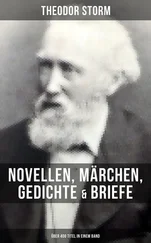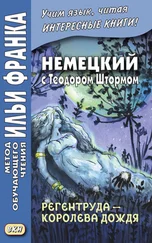––––––––
AUGUST 28.
If my ills would admit of any cure, they would certainly be cured here. This is my birthday, and early in the morning I received a packet from Albert. Upon opening it, I found one of the pink ribbons which Charlotte wore in her dress the first time I saw her, and which I had several times asked her to give me. With it were two volumes in duodecimo of Wetstein's "Homer," a book I had often wished for, to save me the inconvenience of carrying the large Ernestine edition with me upon my walks. You see how they anticipate my wishes, how well they understand all those little attentions of friendship, so superior to the costly presents of the great, which are humiliating. I kissed the ribbon a thousand times, and in every breath inhaled the remembrance of those happy and irrevocable days which filled me with the keenest joy. Such, Wilhelm, is our fate. I do not murmur at it: the flowers of life are but visionary. How many pass away, and leave no trace behind—how few yield any fruit—and the fruit itself, how rarely does it ripen! And yet there are flowers enough! and is it not strange, my friend, that we should suffer the little that does really ripen, to rot, decay, and perish unenjoyed? Farewell! This is a glorious summer. I often climb into the trees in Charlotte's orchard, and shake down the pears that hang on the highest branches. She stands below, and catches them as they fall.
––––––––
AUGUST 30.
Unhappy being that I am! Why do I thus deceive myself? What is to come of all this wild, aimless, endless passion? I cannot pray except to her. My imagination sees nothing but her: all surrounding objects are of no account, except as they relate to her. In this dreamy state I enjoy many happy hours, till at length I feel compelled to tear myself away from her. Ah, Wilhelm, to what does not my heart often compel me! When I have spent several hours in her company, till I feel completely absorbed by her figure, her grace, the divine expression of her thoughts, my mind becomes gradually excited to the highest excess, my sight grows dim, my hearing confused, my breathing oppressed as if by the hand of a murderer, and my beating heart seeks to obtain relief for my aching senses. I am sometimes unconscious whether I really exist. If in such moments I find no sympathy, and Charlotte does not allow me to enjoy the melancholy consolation of bathing her hand with my tears, I feel compelled to tear myself from her, when I either wander through the country, climb some precipitous cliff, or force a path through the trackless thicket, where I am lacerated and torn by thorns and briers; and thence I find relief. Sometimes I lie stretched on the ground, overcome with fatigue and dying with thirst; sometimes, late in the night, when the moon shines above me, I recline against an aged tree in some sequestered forest, to rest my weary limbs, when, exhausted and worn, I sleep till break of day. O Wilhelm! the hermit's cell, his sackcloth, and girdle of thorns would be luxury and indulgence compared with what I suffer. Adieu! I see no end to this wretchedness except the grave.
––––––––
SEPTEMBER 3.
I must away. Thank you, Wilhelm, for determining my wavering purpose. For a whole fortnight I have thought of leaving her. I must away. She has returned to town, and is at the house of a friend. And then, Albert—yes, I must go.
––––––––
SEPTEMBER 10.
Oh, what a night, Wilhelm! I can henceforth bear anything. I shall never see her again. Oh, why cannot I fall on your neck, and, with floods of tears and raptures, give utterance to all the passions which distract my heart! Here I sit gasping for breath, and struggling to compose myself. I wait for day, and at sunrise the horses are to be at the door.
And she is sleeping calmly, little suspecting that she has seen me for the last time. I am free. I have had the courage, in an interview of two hours' duration, not to betray my intention. And O Wilhelm, what a conversation it was!
Albert had promised to come to Charlotte in the garden immediately after supper. I was upon the terrace under the tall chestnut trees, and watched the setting sun. I saw him sink for the last time beneath this delightful valley and silent stream. I had often visited the same spot with Charlotte, and witnessed that glorious sight; and now—I was walking up and down the very avenue which was so dear to me. A secret sympathy had frequently drawn me thither before I knew Charlotte; and we were delighted when, in our early acquaintance, we discovered that we each loved the same spot, which is indeed as romantic as any that ever captivated the fancy of an artist.
From beneath the chestnut trees, there is an extensive view. But I remember that I have mentioned all this in a former letter, and have described the tall mass of beech trees at the end, and how the avenue grows darker and darker as it winds its way among them, till it ends in a gloomy recess, which has all the charm of a mysterious solitude. I still remember the strange feeling of melancholy which came over me the first time I entered that dark retreat, at bright midday. I felt some secret foreboding that it would, one day, be to me the scene of some happiness or misery.
I had spent half an hour struggling between the contending thoughts of going and returning, when I heard them coming up the terrace. I ran to meet them. I trembled as I took her hand, and kissed it. As we reached the top of the terrace, the moon rose from behind the wooded hill. We conversed on many subjects, and, without perceiving it, approached the gloomy recess. Charlotte entered, and sat down. Albert seated himself beside her. I did the same, but my agitation did not suffer me to remain long seated. I got up, and stood before her, then walked backward and forward, and sat down again. I was restless and miserable. Charlotte drew our attention to the beautiful effect of the moonlight, which threw a silver hue over the terrace in front of us, beyond the beech trees. It was a glorious sight, and was rendered more striking by the darkness which surrounded the spot where we were. We remained for some time silent, when Charlotte observed, "Whenever I walk by moonlight, it brings to my remembrance all my beloved and departed friends, and I am filled with thoughts of death and futurity. We shall live again, Werther!" she continued, with a firm but feeling voice; "but shall we know one another again what do you think? what do you say?"
"Charlotte," I said, as I took her hand in mine, and my eyes filled with tears, "we shall see each other again—here and hereafter we shall meet again." I could say no more. Why, Wilhelm, should she put this question to me, just at the moment when the fear of our cruel separation filled my heart?
"And oh! do those departed ones know how we are employed here? do they know when we are well and happy? do they know when we recall their memories with the fondest love? In the silent hour of evening the shade of my mother hovers around me; when seated in the midst of my children, I see them assembled near me, as they used to assemble near her; and then I raise my anxious eyes to heaven, and wish she could look down upon us, and witness how I fulfil the promise I made to her in her last moments, to be a mother to her children. With what emotion do I then exclaim, 'Pardon, dearest of mothers, pardon me, if I do not adequately supply your place! Alas! I do my utmost. They are clothed and fed; and, still better, they are loved and educated. Could you but see, sweet saint! the peace and harmony that dwells amongst us, you would glorify God with the warmest feelings of gratitude, to whom, in your last hour, you addressed such fervent prayers for our happiness.'" Thus did she express herself; but O Wilhelm! who can do justice to her language? how can cold and passionless words convey the heavenly expressions of the spirit? Albert interrupted her gently. "This affects you too deeply, my dear Charlotte. I know your soul dwells on such recollections with intense delight; but I implore—" "O Albert!" she continued, "I am sure you do not forget the evenings when we three used to sit at the little round table, when papa was absent, and the little ones had retired. You often had a good book with you, but seldom read it; the conversation of that noble being was preferable to everything,—that beautiful, bright, gentle, and yet ever-toiling woman. God alone knows how I have supplicated with tears on my nightly couch, that I might be like her."
Читать дальше












